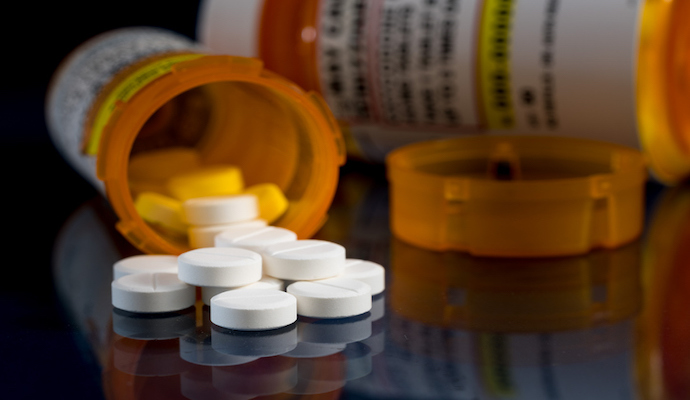Biogen Triumphs Over Patent Challenge of Multiple Sclerosis Drug
The patent challenge of Biogen’s multiple sclerosis drug Tecfidera will stop the launch of Mylan’s cheaper generic alternative, while a similar case regarding HIV drug patents went a different way.

Source: Thinkstock
- Biogen recently won an ongoing patent dispute over its multiple sclerosis (MS) drug, Tecfidera, which pulled in nearly $4.4 billion in revenue in 2019, according to a decision from the US Patient and Appeal Board.
Obtained by Axios’ Bob Herman, the decision blocks Mylan’s efforts to launch a cheaper generic of the drug.
In February 2019, the generic drug company asked for an inter partes review to examine the validity of Biogen’s patent after it decided that the dosage of Tecfidera was predictable and its active ingredient wasn’t original.
The Patent Trial and Appeal Board (PTAB) backed Biogen and agreed to uphold the validity of its patent on Tecfidera. This case decision is a major breakthrough for Biogen, as the company now has protection from generic competition for the MS drug until 2028.
“We determine that the evidence relied on by Petitioner does not support Petitioner’s position that a person of ordinary skill in the art would have understood that “doses between 360 mg/day and 720 mg/day were likely to be efficacious doses, and, in particular, 480 mg/day was likely to be an efficacious dose,” the decision said.
Mylan “strongly disagrees with the decision,” the company’s spokesperson told news sources. The company still believes that Biogen’s 514 patient is “invalid” and “will continue its challenges in both the district court and the Federal Circuit to remove this patent from blocking generic competition to Tecfidera.”
A Biogen spokesperson emphasized that the company stands behind what they believed and is “pleased” with the court’s decision to uphold the patent.
“Biogen is pleased with the US Patent Trial and Appeal Board’s decision upholding the US Patent covering the daily dosing regimen of 480 mg for Tecfidera,” a spokesperson from Biogen told PharmaNewsIntel When it was approved in the US in March 2013, Tecfidera set a new standard in the care of relapsing MS. Its well-established efficacy and safety profile is supported by more than 415,000 patients who have been treated to date.”
In September 2019, Biogen uncovered 10-year results from a phase 3 extension study and analysis of Tecfidera that supported the consistent, long- term benefits of treatment with the MS drug.
In the fourth quarter of 2019, channel inventory levels in the US increased by nearly $135 million for Tecfidera, along with four other drugs, according to a separate Biogen press release. The company does not see competition of change to foreign exchange rates for Tecfidera this year.
The net worth value for this drug as of December 31, 2019, was $36.1 million.
This case decision means that a cheaper generic alternative is still years away, but will become available to the public before 2028 due to other pending cases. The main issue for the 2028 patient is whether the 360-mg dose is effective in the results.
But pharmaceutical company Gilead was not so lucky and failed to invalidate patents held by the federal government pertaining to its HIV prevention pill, Truvada.
Axios’ Herman also reported that the Patent Trial and Appeals Board ruled that Gilead did not demonstrate enough evidence to justify a full hearing and failed to demonstrate it was likely to win its argument for overturning the patents held by the US government.
The biotechnology company researches and develops commercialized drugs and believes that the Patent Trial Appeal Board did not find the limited evidence it introduced. Gilead continues to believe the patents are invalid and should not have been granted.
Gilead stressed that they will continue to work with federal agencies, including HHS and the CDC to fight the HIV epidemic in the US.
“We remain committed to supporting the government’s efforts to substantially increase the number of people at risk for HIV who have access to PrEP through our historic donation of PrEP medication for uninsured individuals and through ongoing efforts to address the social and structural barriers to care,” Gilead said in a released statement.
